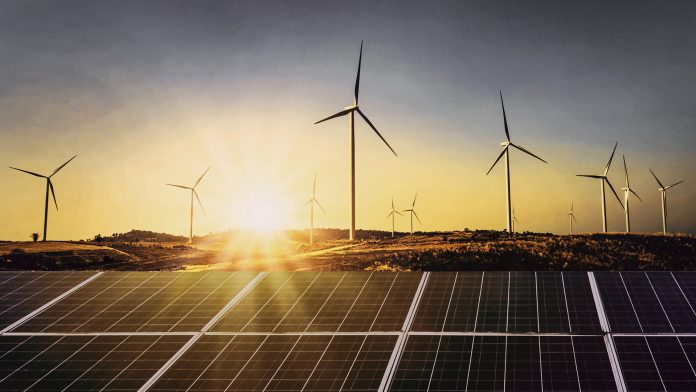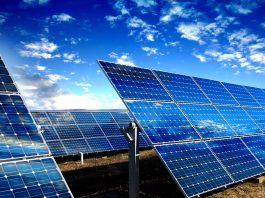European Solar has investigated and emphasised the necessity of developing European PV production, to secure a global green energy transition.
“The European Commission wants to scale up the yield capacity to 600 gigawatts in 2030. The engine of the energy transition is running at full speed, but under the hood, it is starting to smoke. Scarcity of raw materials and high transport costs are causing problems for independent entrepreneurs in particular,” explained Gerard Scheper, CEO of European Solar.
It can be argued that this has contradictory connotations, however, the solar energy sector is growing rapidly. Therefore, companies and countries are coming up with ambitious climate plans, where in which solar energy plays an important role. Although, on the other hand, there are parties on the verge of collapse.
“I cannot help feeling that many parties hardly have any more room for manoeuvre. The fat on the bones of the smaller independent entrepreneurs in particular is gone after two years of COVID-19. High transport costs and shortages of raw materials result in enormously high costs that do not compensate for the increased demand,” added Scheper.
Western countries are speaking out against Chinese raw materials
Additionally, as the demand for the raw materials required for solar energy installation is bigger than the supply, Scheper has noted another emerging risk. An increasing number of western countries are speaking out against Chinese raw materials and products that enter the market through forced labour. For example, the US has recently enforced a law to ban the import of PV modules from China, where in which there is a suspicion of forced labour.
Simultaneously, the European Commission is heavily focusing on rapidly upscaling European PV production of raw materials, materials, and products. However, it has been noted that this will take time, and the opportunity for these products to be cheaper than Chinese alternatives seems unlikely.
“So, we do not want solar panels that have been produced on coal energy and forced labour, nor do we want to pay the grand price. That is not realistic. We have to make concessions somewhere, so Europe must also very clearly prioritise and at the same time continue to talk to and work with China and Chines companies. In principle, they do not need us, their domestic demand covers almost their entire supply,” noted Scheper.
“At Intersolar in Munich, the overall (and very valid) sentiment was that we as Europe want to get rid of all kinds of forced labour within twelve months by requiring European suppliers to certify their supply chain. In full detail, they would then have to state in black and white that there is no forced labour involved. We of course need to get rid of that, but we are too dependent at the moment to be able to say that without consequences. There comes a time when the Chinese say, ‘if you know it all so well, then you will do it yourself.’ We need to carefully balance here.”
Currently, manufacturers are also required to deal with both the lack of supplies worldwide and potential delays in deliveries, as often products can be provided after months of delay. “As a result, installers cannot complete their installations and cannot invoice. Installations are also being reconsidered because of the threat of a recession. For many smaller installers and entrepreneurs – who then cannot generate solar energy – that is a big financial setback,” observed Scheper.
The impact of COVID-19 on installation
Throughout the pandemic, small installation companies faced more and more issues; especially the companies that were already struggling due to COVID-19. During lockdowns, Dutch people started to make their homes more sustainable, which caused the demand for installation to rise enormously.
“[Sometimes up to] a third of the staff was at home with complaints or in quarantine,” explained Scheper. “The rest of the staff had to solve that increased demand and now that demand has risen even further while recruiting new staff is also a huge task. The workload on installers has been enormous for two years.”
The smallest installation companies can scale down, however, the parties that only employ approximately ten people cannot just do that, which will lead to the loss of further staff.
“That makes it mixed feelings because there is plenty of work and in six months to a year – when the prices of raw materials have fallen slightly again – you will need them again. These are people we desperately need for the energy transition, so something has to be done,” added Scheper.
“That is not necessarily a bad thing. It is pretty normal in economics for larger companies to gobble up the smaller ones at some point. But now these are companies that are relevant because of the number of orders, but because of the high costs they still have to sell their company, and probably at too low a price because they have no choice.”
The government’s position on the roll-out of solar energy
A halt in the roll-out of solar energy would have major consequences for the ambitions recently outlined by Rob Jetten, Minister for Climate and Energy.
“There are a number of things on which the government could focus, such as: ‘How can we keep companies that have been committed to the energy transition for years and will have to do so for years to come, financeable?’ The government could do something in the purchase financing or by communicating certain guarantees to the financial institutions,” said Scheper.
“It is not like the projects are disappearing. This only happens if the developer or installer goes bankrupt. Banks are not going prefinance, they have to think about themselves, but a government can. By removing the financing risk for the bank, more parties can survive this period of abnormally high litigation costs.”
The Dutch government recently signed a contract with Gasunie for the lease of a floating LNG installation from the American energy infrastructure company New Fortress Energy. The government wants to guarantee the financial risk that Gasunie runs if it finds insufficient customers.
Another point on which the government could do more is in the area of labour. Maarten Otto, CEO of grid operator Alliander and chairman of employers’ association WENB, recently wrote an open letter to Minister Jetten in which he drew attention to the enormous shortage of technicians.
“The government could tinker with labour-power, for example with an accelerated retraining programme. The number of vacancies per unemployed person is enormous, but there are still more than 300,000 people unemployed or working in sectors that are running less. The government can steer this, but the key question remains the over-demanded raw materials market,” concluded Scheper.










